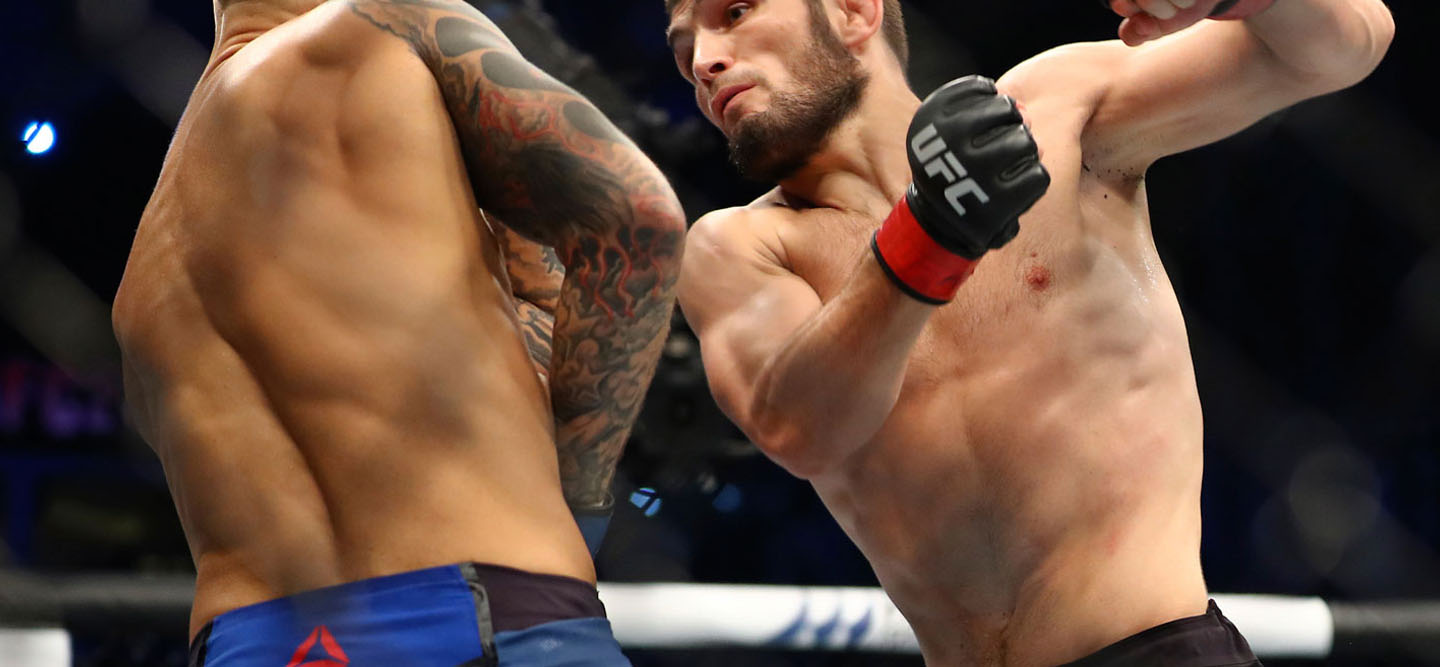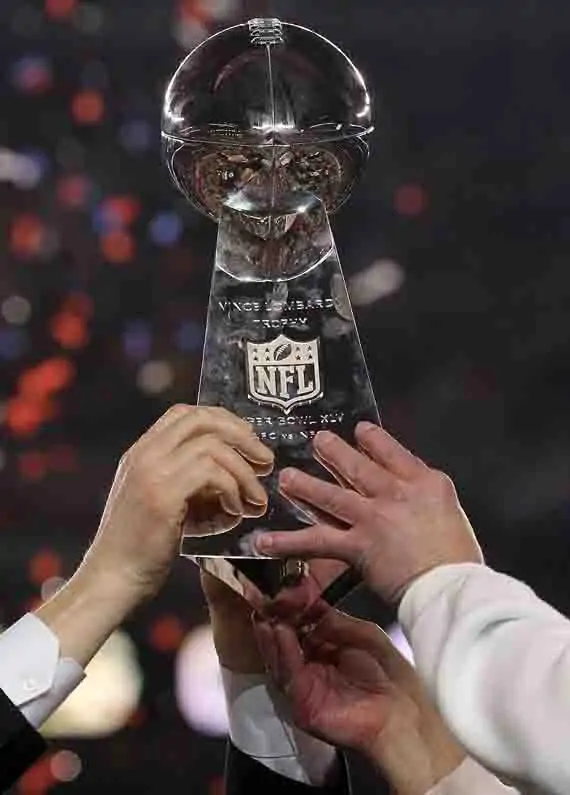How to Bet on UFC


There was a time when UFC was pitted head-to-head with boxing but we’ve come to learn that both sports can coexist. While many fight fans still get excited about the mega boxing events from time to time, the UFC is on the calendar more frequently with cards every couple of weeks. And while boxing tends to hone in on the main event of the evening, the UFC’s cards present plenty of intriguing bouts from start to finish.
If you are still new to the UFC and Mixed Martial Arts, you might not be fully familiar with how to bet on its cards. That’s why we’ve crafted this guide to walk you through the beginner basics all the way through to the strategy of it all.
Moneylines
If you’re completely new to betting on sports, we’ll do a quick rundown of moneylines, so that you understand how to read UFC odds. Let’s start with an example:
Brock Lesnar +200
Daniel Cormier -250
When you look at the odds, you’ll always see the fighter with the odds next to their name. When you see a minus sign next to the fighter’s name, that indicates the amount of money you would bet to win $100. In this case, you’d bet $250 to win $100 on Cormier. If there is a plus sign next to the odds, that indicates how much money you’d win if you bet $100. In this case, you’d win $200 if you bet on Lesnar and he won. The bigger the negative number, the bigger the favorite. And on the flip side, the bigger the positive number, the bigger the underdog the fighter is deemed to be.
Of course, you don’t have to stick to those amounts but that’s the equation. You can bet $25 to win $10 on Cormier or $36.50 to win $73 on Lesnar. Once you have an understanding of the odds, you’ll get a clear vision of who is favored, who is the underdog and how much you’ll win by betting on each.
Over-Under
In terms of totals for fights – or over-unders, as they are also known – what you’re betting on is the length of the fight.
If the fight has a total of 1.5, that means that the halfway point of the second round (if it’s a three-round fight) is the over-under. If the fight ends before the 2:30 mark of the second round, anyone who bets the under would win. If the fight goes beyond the 2:30 mark of the second round, anyone who bets the over would win.
If you’re not sure who is going to win the fight but you understand the style of the fighters, you might have a beat on whether it will be a short or long fight. Two fighters with knockout power are likely to stand in front of each other and trade shots until one of the two drops. It would be a surprise if a brawl like that lasted the full allotted time and went over. However, if the bout is between two technical fighters who jab, kick and aim for takedowns, their clash is likely to be longer lasting.
Style Matchups
The sport is called Mixed Martial Arts, hence why there are many different styles of fighters in the UFC. Understanding the different types of the fighters is one of the keys to handicapping the matchups.
You’ll find grapplers and wrestlers, who prefer to get the fight to the ground. That’s in stark contrast to strikers or kickboxers, who want to keep the fight standing. There are a number of differences in the nuances of both of these types of fighters.
Someone who is a brawler and has knockout power tends to have less stamina to roll around on the ground. Although it’s a broad generalization, those types of fighters try to stick with their strengths, defend from being taken down and try to end fights as quickly as possible with their brute force.
On the other hand, someone who is strong at wrestling will have much more stamina. They’ll aim to shoot for a takedown, get their opponent on their back and uncomfortable, and then try to wear them down. If they find an opening to pound them with fists or elbows, or a submission, that’s what they are going to do.
Of course, not all fighters land neatly in one bucket or the other. Typically, the best the fighters will have a strength but be very competent all-around.
Understanding Weight Classes
Like in boxing, the UFC has different weight classes in which it categorizes its fighters. When you’re handicapping a fight, you’ll want to take note of the weight class of the combatants. That’s because the difference in the divisions often leads to different styles of fights.
The lighter fighters, like featherweights, tend to have more fights that go the distance. They are lighter in terms of weight and sheer muscle mass, so their punches don’t pack nearly as much force as the heavyweights. That’s why you’ll see higher numbers for over-unders in their fights. As for the bigger fighters, like the heavyweights, their tussels tend to be shorter. They have a lot of strength and power, so it might only take one direct shot to end the night.
Championship Fights
In terms of the length of fights, one important factor to note is whether or not it’s a championship bout. All UFC fights are three five-minute rounds except for title fights. Those are extended to five five-minute rounds.
Why that’s important is that it tests the fighters’ endurance for two extra rounds and not everyone is used to it. If the champ is defending his belt for the fourth time, he might be more comfortable if the fight reaches rounds four and five because he’s more likely to have been in that extra time. However, a challenger will only fight that much if he’s been the champ before or challenged one. Adapting to those extra 10 minutes of fighting is a negative consideration for the challenger when handicapping these bouts.
How Fight Ends Props
There aren’t always a ton of props with UFC fights but one common one that you’ll find is how the fight will end. Remember that UFC fights have a number of different potential outcomes and that’s what you’re predicting with this bet. Here are the options:
Knockout
A knockout is one of the most exciting moments in sports. Technically speaking, a knockout is when a fighter is knocked down and is either unconscious or disoriented enough that he’s not able to defend himself. At that point, the referee will jump in and bring the fight to an end.
Submission
A submission is another dramatic way to bring the fight to a conclusion. How it works is one fighter will embed a lock on the other fighter, either using a choke or a joint lock. Choke holds are applied to the neck area and cut off blood flow to the brain, which usually results in the fighter losing consciousness or tapping out right before it. A joint lock is when one fighter stretches the other’s joints out to the max – and likely beyond their normal range of motion – and the victim suffers some serious pain. When he can’t take anymore, he’ll tap out.
Decision
A judge’s decision is what happens when the fight goes the distance. At that point, the three official judges scoring the fight will submit their scorecards. Scoring is on a 10-point system and rounds are scored 10-9 with higher score going to the fighter who had the upper hand in that particular round. A fighter can win a round 10-8 if the loser is penalized for a foul or if it’s a particularly dominant round. When the judges tally everything up, the bout can be a unanimous decision (all three judges agree), a majority decision (two judges score it a win for one fighter while another calls it a draw), a split decision (two judges pick one fighter and another picks the other), or a majority draw (two judges consider it a draw while the third picks a winner).
Disqualification
Although it’s rarely seen, a fighter can be disqualified. There are certain things that are deemed outside of the rules of UFC combat. A fighter will usually get warned at first for those types of hits but if they continue, that could lead to disqualification.
A few examples of that would be shots below the belt, fists to the back of the head or the use of 12-6 elbow strikes.
Futures
Futures bets for UFC are a little different than other sports. For UFC futures, you’re likely looking at a very early line for a fight that isn’t even officially announced but many expect to happen. For example, if Conor McGregor is expected to fight someone but it’s not officially scheduled just yet, a betting line might be put up. You can get some early action on the line but if the bout doesn’t happen as planned, you’ll get refunded.
This is sometimes a good idea if you think the betting line will swing one way or another, and you want to take advantage of some early value.



